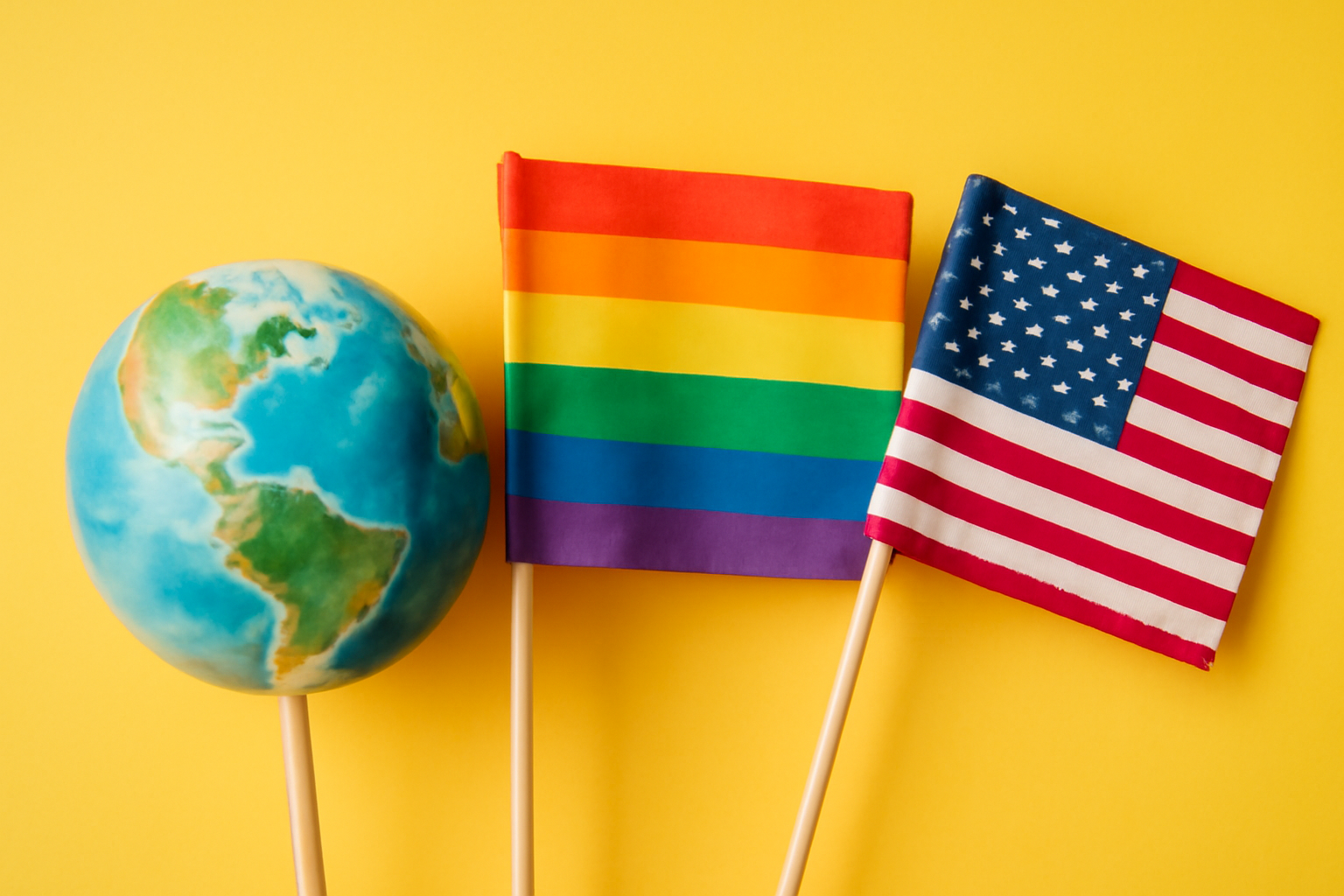
How U.S. LGBTQ+ policies resonate globally
In recent years, U.S. policies have had a considerable impact on LGBTQ+ communities worldwide. Although there have been significant advances in LGBTQ+ rights in America, its global stance doesn't always reflect this progress. This disparity raises some thought-provoking questions about America as a leader in equality and human rights on a global scale.Is America truly a role model?
For many, America serves as a beacon, especially when it comes from LGBTQ+ individuals seeking acceptance and legal recognition. Groundbreaking achievements, like legalizing same-sex marriage and enforcing anti-discrimination laws, have illuminated a path that other nations might follow. But America's international influence isn't just about what happens within its borders—it's also shaped by how it deals with other countries and its strategic use, or misuse, as some might argue, with foreign aid.How foreign aid plays a role in LGBTQ+ rights
Foreign aid presents a powerful tool in promoting LGBTQ+ rights across borders. With financial assistance and strategic alliances, there's a real opportunity here. Some administrations have wisely linked aid with demands on improved human rights, including LGBTQ+ rights. But, inconsistently, other administrations have turned a blind eye, allowing discrimination abroad remain unchecked. This inconsistency not only sends mixed messages but also risks undermining all progress made domestically.The political tug-of-war and its effect on advocacy
Conservative forces in U.S. politics often shape international agendas that may not always favor LGBTQ+ rights. It sometimes results in U.S. support abroad that doesn't align with values like equality and non-discrimination. U.S. embassies frequently champion human rights, but their efforts can be overshadowed by wider political currents and foreign policy priorities. Mixed signals arise when embassies are asked to pull back on their support at LGBTQ+ events, muddying waters further and emboldening anti-LGBTQ+ rhetoric.The power and promise in grassroots movements
Despite these hurdles, global LGBTQ+ communities continue their relentless push toward change. Grassroots movements play a key role, especially in enhancing legal and social rights in their home countries. International solidarity strengthens these efforts. The U.S., by lending financial and political support, can help provide a stage and a voice. When U.S.-based organizations team up with global groups, they strengthen resources and strategies, standing together against discrimination.Charting a new course in LGBTQ+ advocacy
To be a true ally on a global scale, America needs a consistent, principled international presence. This means weaving LGBTQ+ rights protection and promotion through every aspect of its foreign policies—whether it's aid or diplomacy. By taking this path, America can reclaim its place as a champion of human rights and ensure its influence promotes and protects LGBTQ+ individuals worldwide. The road ahead demands unwavering dedication, transparency, and a sincere commitment to equality.Related Posts
Triumphant Trans Woman Wins Legal Battle and Inspires Others to Stand Up for Their Rights
Breaking new ground: a landmark victory in transgender rights After battling in courtrooms and enduring endless challenges, Diana Portillo, a transgender woman, has secured a monumental victory in her decade-long fight against workplace discrimination. The result? Nearly $1 million awarded in a historic settlement. But this isn't just a win on paper—it represents a powerful precedent in combati [...]
Pride Month in Latin America: Protests and Demands for Equality
**Celebrating Pride and advocating LGBTQ+ rights in Latin America** Pride Month in Latin America was a lively mix where celebration met activism. Communities united, not just throwing a party but making a stand—demanding equality and pushing governments toward better protection and rights recognition. Throughout Latin America, pride events erupted in marches and cultural displays, each with a c [...]
Transgender Erasure Actions Implemented by National Park Service
```html Trump administration's impact on national park service and transgender recognition The Trump administration made notable moves in undermining transgender representation, which included directing agencies like National Park Service not include "T" and "Q" when they refered “LGBTQ” in any official communication. This move seems part a broader plan by this administration aimed at reducin [...]